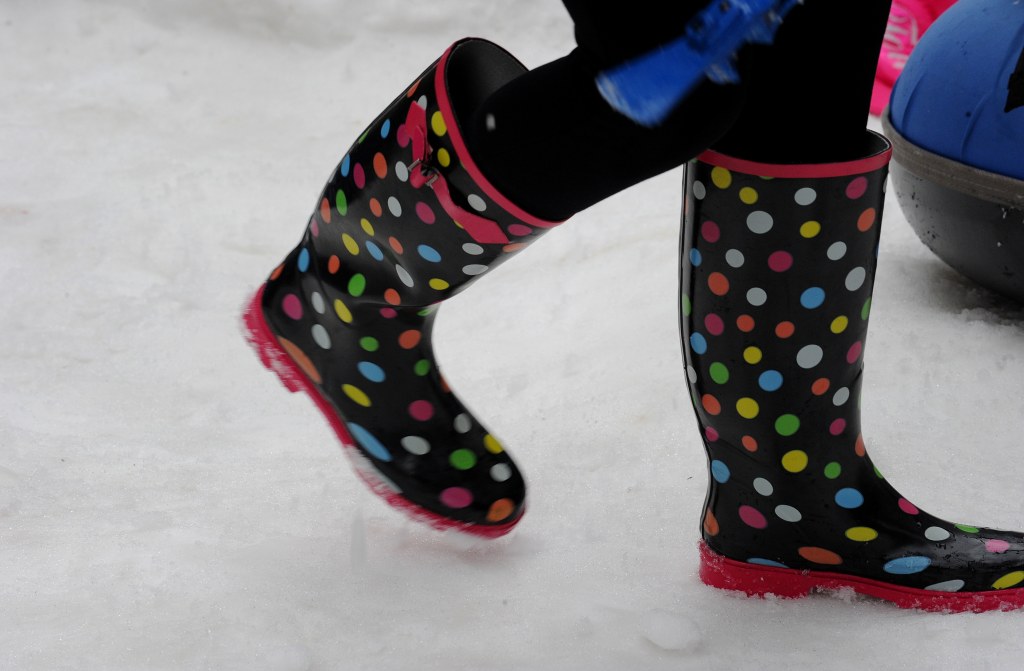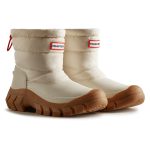Choosing The Perfect Footwear: Snow Boots Vs. Rain Boots – Find Your Ideal Pair Today!
Snow Boots vs Rain Boots: Which One is Right for You?
Introduction
Hello, Boots Enthusiast! Welcome to our comprehensive guide on choosing the perfect footwear for snowy and rainy conditions. In this article, we will explore the differences between snow boots and rain boots, their advantages and disadvantages, and provide you with all the necessary information to make an informed decision. So, let’s dive in!
2 Picture Gallery: Choosing The Perfect Footwear: Snow Boots Vs. Rain Boots – Find Your Ideal Pair Today!
Table: Snow Boots vs Rain Boots
What are Snow Boots and Rain Boots?

Image Source: busbeestyle.com
Snow boots and rain boots are specialized footwear designed to provide protection and comfort in specific weather conditions. Snow boots are insulated and waterproof, providing warmth and grip in snowy and icy conditions. On the other hand, rain boots are made of waterproof materials to keep your feet dry during wet and rainy weather.
Who Should Wear Snow Boots and Rain Boots?

Image Source: imgix.net
Snow boots are essential for individuals living in regions with heavy snowfall or those who frequently engage in winter activities like skiing or snowboarding. They provide insulation and traction, keeping your feet warm and secure in snowy terrains. Rain boots, on the other hand, are ideal for anyone who needs to navigate through wet and muddy environments, such as farmers, gardeners, or outdoor enthusiasts.
When Should You Wear Snow Boots and Rain Boots?
Snow boots should be worn during winter months when there is snow, ice, or slush on the ground. They are designed to keep your feet warm and dry in freezing temperatures and provide excellent traction on slippery surfaces. Rain boots, on the other hand, should be worn during rainy seasons or when there is a high chance of encountering wet conditions. They will keep your feet dry and protect you from puddles and mud.
Where Can You Wear Snow Boots and Rain Boots?
Snow boots are suitable for various winter activities such as hiking, skiing, snowboarding, or simply walking in snowy terrains. They are also great for everyday winter wear, providing warmth and comfort. On the other hand, rain boots are perfect for outdoor activities in wet conditions, such as gardening, fishing, or attending music festivals. They are also convenient for urban use during rainy days.
Why Should You Choose Snow Boots or Rain Boots?
The primary reason for choosing snow boots is their excellent insulation and traction properties. They keep your feet warm and prevent slips and falls on icy surfaces. Rain boots, on the other hand, offer waterproof protection, keeping your feet dry and comfortable during wet conditions. Both types of boots are essential for their respective weather conditions and provide specific benefits that regular footwear cannot match.
How to Choose the Right Snow Boots or Rain Boots?
Choosing the right snow boots or rain boots involves considering several factors, such as insulation, waterproofing, traction, fit, and style. It is essential to prioritize your needs and the specific weather conditions you will encounter. Look for boots with proper insulation, waterproof materials, sturdy soles, and a comfortable fit that suits your preferences. Additionally, consider the style and design that aligns with your personal taste.
Advantages and Disadvantages of Snow Boots vs Rain Boots
Snow Boots
Advantages:
👍 Excellent insulation to keep your feet warm in freezing temperatures.
👍 Superior traction for walking on icy or slippery surfaces.
👍 Durable and sturdy construction for outdoor winter activities.
Disadvantages:
👎 Bulky and heavy compared to regular boots.
👎 Limited breathability, which may cause sweaty feet.
👎 Higher cost compared to regular footwear.
Rain Boots
Advantages:
👍 Waterproof protection to keep your feet dry in wet conditions.
👍 Easy to clean and maintain.
👍 Versatile and suitable for various outdoor activities.
Disadvantages:
👎 Limited insulation, which may not provide enough warmth in cold temperatures.
👎 Less traction on icy or snowy surfaces.
👎 Some styles may lack arch support and cushioning.
Frequently Asked Questions (FAQ)
1. Can I wear snow boots in the rain?
Yes, snow boots are generally waterproof and can be worn in the rain. However, they may lack the same level of waterproofing as rain boots, so it’s essential to consider the specific conditions you’ll be facing.
2. Can rain boots be worn in the snow?
While rain boots provide waterproof protection, they are not insulated for extreme cold temperatures. If you plan to walk in deep snow or icy conditions, it’s recommended to wear snow boots instead.
3. Can I use snow boots for hiking?
Yes, snow boots can be used for hiking, especially in snowy or icy terrains. Their insulation and traction properties make them suitable for outdoor activities like hiking, ensuring comfort and safety.
4. Can rain boots be worn for casual occasions?
Absolutely! Rain boots come in various styles and designs, making them suitable for casual occasions as well. Pair them with jeans or dresses for a trendy and practical look.
5. Are there any alternatives to snow boots and rain boots?
Yes, there are alternatives such as waterproof hiking boots or winter boots. These boots offer a combination of insulation, waterproofing, and traction, making them suitable for versatile outdoor activities.
Conclusion
In conclusion, choosing between snow boots and rain boots depends on the weather conditions and activities you anticipate. Snow boots excel in providing insulation and traction in snowy environments, while rain boots offer excellent waterproof protection during wet conditions. Consider your needs, preferences, and the specific weather you’ll encounter to make the right choice. Remember, investing in quality footwear ensures comfort, safety, and durability for your outdoor adventures.
Final Remarks
As a final note, it’s important to note that while snow boots and rain boots offer specific benefits, they are not the only options available. Consider exploring other alternatives like waterproof hiking boots or winter boots, depending on your needs and preferences. Always prioritize comfort, fit, and functionality when selecting any type of footwear. Stay dry, warm, and safe in all your outdoor endeavors!
This post topic: Boots



